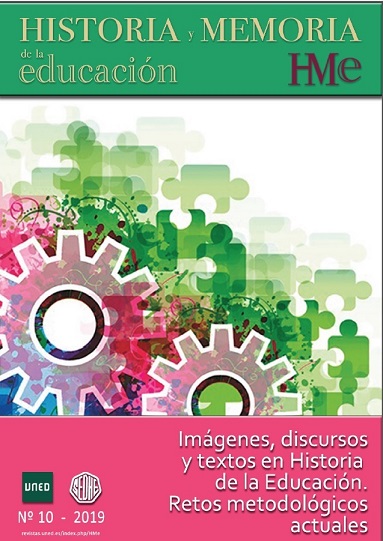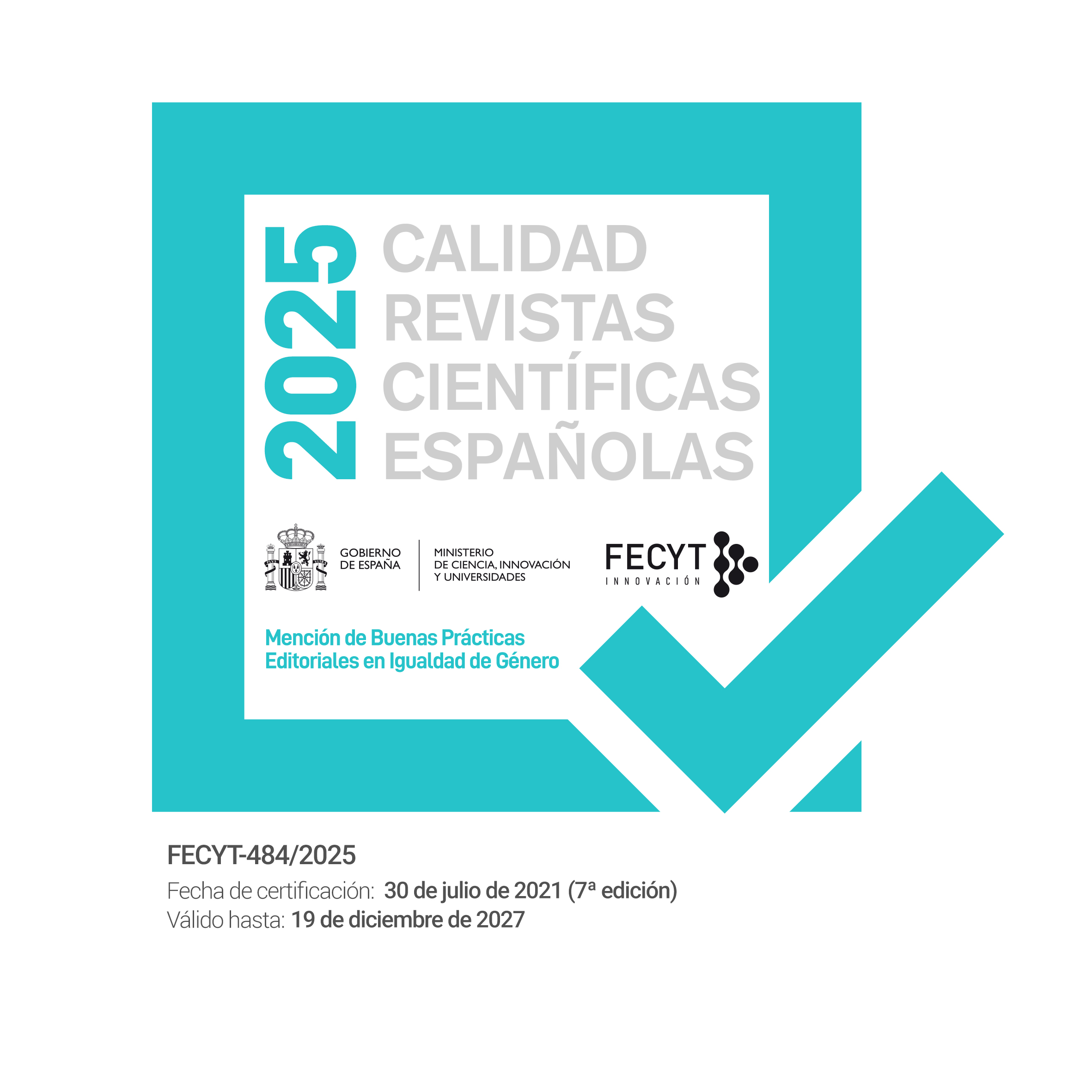A pedagogical experience of the Progressive Education movement: Carmen Conde and the Orfanato Nacional de El Pardo (Spanish National Orphanage of El Pardo)
DOI:
https://doi.org/10.5944/hme.10.2019.20668Keywords:
Carmen Conde, Orfanato Nacional de El Pardo, Progressive Education, Oral expression, Written expressionAbstract
This article analyzes the work done by Carmen Conde at the Orfanato Nacional de El Pardo (Spanish National Orphanage of El Pardo) as inspector-overseer of studies between October of 1934 and September of 1935. Firstly, the article explains the transformation that this center had undergone in the early years of the Second Spanish Republic and examines the appointment of Carmen Conde at the Orphanage, her educational initiatives and the conflictive relationship with the management positions of the organization, the board and the administrator, until her removal in the summer of 1935. Secondly, the article studies her attempts to return to the Orphanage after the electoral triumph of the Popular Front during the winter of 1936 and the competition with María Teresa Junquera to lead the institution. Thirdly, the text exposes the circumstances of the creation and the content of her publication La composición literaria infantil: (escuela primaria) (Literary creation for children: primary school), as a result of her attempts carried out in the Orfanato Nacional de El Pardo to improve the oral and written expression of the foster children. Finally, the paper enquires into this work and compares it to the second version of the thirty characteristics of the New Schools elaborated by Adolphe Ferrière in 1925. These characteristics have to do with the organization of the schools, physical life, intellectual life, social education and artistic and moral education.
Downloads
References
Cegarra Salcedo, María y Carmen Conde. Epistolario: 1924-1988, ed. Fran Garcerá. Madrid: Torremozas, 2018.
Chamizo Vega, Chamizo. «El proceso de profesionalización de la enfermería en el Principado de Asturias». PhD diss., Universidad de Alicante, 2009.
Cobos, Pablo de A. Orfanato Nacional de El Pardo: [tres meses de director de estudios]. Segovia: Imp. Carlos Martín, 1934.
Conde, Carmen. La composición literaria infantil: (escuela primaria). Barcelona: Mujeres Libres, 1937.
Conde, Carmen. Por el camino, viendo sus orillas, vol. I. Barcelona: Plaza y Janés, 1986.
Conde, Carmen. Por la escuela renovada. Murcia: Universidad de Murcia, 1978.
Faria de Vasconcelos, Antonio. Una escuela nueva en Bélgica. Madrid: Francisco Beltrán, 1920.
Fernández Fernández, Javier. «La construcción de una casa de huérfanos modélica, el Orfanato Nacional de El Pardo (febrero de 1931-febrero de 1934)». Trabajo de Fin de Máster, Universidad de Alcalá, 2013.
Ferrière, Adolphe. «L’“École nouvelle” et le Bureau International des Écoles nouvelles». Pour l’Ére nouvelle 15 (1925): 2-8.
Ferrière, Adolphe. La práctica de la escuela activa: experiencias y actuaciones. Madrid: Francisco Beltrán, 1928.
Gutiérrez-Vega, Zenaida y Marie-Lise Gazarian-Gautier. Carmen Conde, de viva voz. Nueva York: Senda Nueva de ediciones, 1992.
Junta de Ampliación de Estudios. Memoria correspondiente a los cursos 1922-23 y 1923-4. Madrid: Junta de Ampliación de Estudios, 1925.
Moreno Martínez, Pedro Luis. «Carmen Conde y una ilusión: la educación del pueblo». En Carmen Conde: voluntad creadora (1907-1996), ed. Francisco Javier Díez de Revenga, 99-111. Murcia: Sociedad Estatal de Conmemoraciones Culturales-Ayuntamiento de Cartagena-Patronato Carmen Conde-Antonio Oliver, 2007.
Moreno Martínez, Pedro Luis. Educación popular en la Segunda República Española: Carmen Conde, Antonio Oliver y la Universidad Popular de Cartagena. Madrid: Biblioteca Nueva, 2008.
Sebastián Raz, José Manuel. «Luis Calandre Ibáñez. Su vida y obra (reivindicación de una figura ilustre de la medicina murciana)». PhD diss., Universidad de Murcia, 2010.
Downloads
Published
How to Cite
Issue
Section
License
Authors who publish in Historia y Memoria de la Educación agree to the following terms:
- Authors retain copyright and grant the journal right of first publication with the work simultaneously licensed under a Creative Commons Attribution-NonCommercial 4.0 International that allows others to share the work with an acknowledgement of the work's authorship and initial publication in this journal.
- Authors are able to enter into separate, additional contractual arrangements for the non-exclusive distribution of the journal's published version of the work (e.g., post it to an institutional repository or publish it in a book), with an acknowledgement of its initial publication in this journal.
- Authors are permitted and encouraged to post their work online (e.g., in institutional repositories or on their website) prior to and during the submission process, as it can lead to productive exchanges, as well as earlier and greater citation of published work (See The Effect of Open Access).












